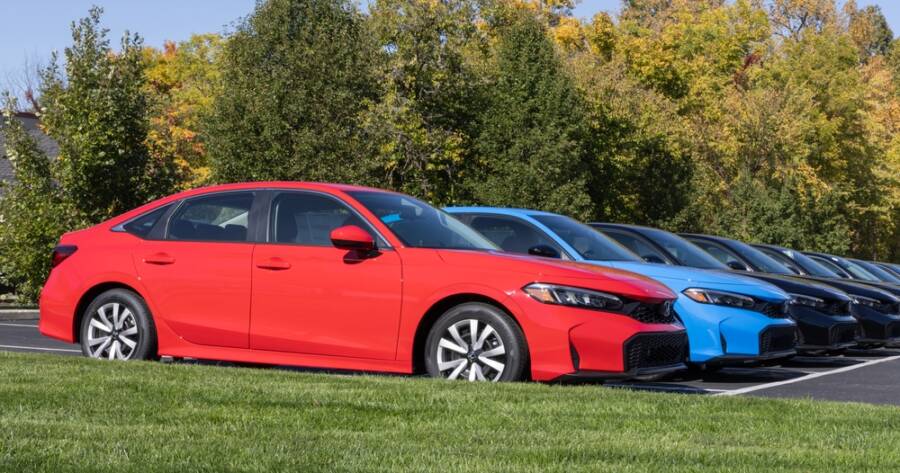In today’s automotive market, compact cars offer an appealing blend of efficiency, style, and practicality. These vehicles, typically ideal for city dwellers and commuters, provide a versatile option for individuals looking for manageable size and impressive fuel economy. With numerous choices available, selecting the right compact car can become a daunting task. It often depends on your personal preferences, driving habits, and budget constraints. Understanding the unique features and benefits of each option can help guide a more informed decision.
The Fuel Efficiency Factor
Fuel efficiency frequently ranks as a top consideration when choosing a compact car. Many models deliver superior gas mileage, potentially reducing long-term operational costs. Vehicles like the Toyota Corolla and Honda Civic are renowned for their impressive fuel efficiency.
Equipped with modern engineering that may include hybrid options, these models balance performance with economical fuel consumption. However, the actual savings can vary based on driving conditions and maintenance habits. When evaluating possibilities, it’s essential to review real-world customer experiences alongside manufacturer claims to gauge what you might expect.
Safety Features and Technology
Safety standards in compact cars have significantly evolved, incorporating cutting-edge technology. Many models now feature advanced driver assistance systems (ADAS), which might include adaptive cruise control, lane-keeping assist, and automated emergency braking.
The Mazda3 and Subaru Impreza, for instance, boast robust safety packages that appeal to those prioritizing security. Yet, effectiveness can vary widely depending on driving environments and individual use. Prospective buyers should consider both standardized safety ratings and customer testimonials in their research to understand better how a vehicle might perform in different scenarios.
Comfort and Interior Design
Compact cars don’t necessarily mean compact comfort. Interior designs in these models have grown more sophisticated, offering ample space and high-quality materials. For instance, the Hyundai Elantra and Volkswagen Golf are celebrated for providing premium interiors without compromising space.
However, comfort is subjective and can also depend on specific features you might prioritize, such as seating configurations, infotainment systems, or climate controls. Potential variations in package configurations necessitate a thorough review of the available options to ensure they align with personal priorities and lifestyle needs.
Performance and Handling
When it comes to performance, compact cars present diverse options. Whether you’re looking for a smooth ride, agile handling, or a spirited drive, the segment includes models that cater to different tastes. The Ford Focus, with its nimble handling, could appeal to those who appreciate driving dynamics.
In contrast, the Volkswagen Golf GTI may satisfy thrill-seekers with its sporty performance. That said, how these characteristics translate to daily driving can vary based on individual expectations and local driving conditions. Personal test drives, where available, provide valuable insights into how a car might handle in real-world scenarios.
Cost and Long-Term Value
Price is often a critical deciding factor, but it goes beyond the initial sticker price. Considerations such as reliability, resale value, and maintenance costs are crucial in evaluating long-term value. Brands like Honda and Toyota often enjoy reputations for reliability and strong resale value over time.
However, specific depreciation can differ based on location, supply-demand dynamics, and broader market shifts. Buyers stand to benefit from investigating warranty options and service packages that may offset future expenses, ultimately impacting long-term ownership satisfaction.
Environmental Impact Considerations
Environmental consciousness is growing in importance for car buyers. Compact cars, particularly hybrids and electric variants, offer greener alternatives. Models like the Nissan Leaf and Toyota Prius highlight the significance manufacturers place on reducing emissions.
However, environmental impact extends beyond tailpipe emissions, encompassing production and lifecycle energy consumption. Exploring the environmental credentials of vehicles can include examining green manufacturing practices and the availability of recycling programs, fostering a more comprehensive view of a car’s ecological footprint.
Personal Lifestyles and Preferences
Ultimately, selecting a compact car often distills down to how well it fits personal lifestyles and preferences. This might include the type of commutes, family needs, or even stylistic choices. Some might prioritize eco-friendly options, while others seek technology-rich models.
Understanding model-specific strengths allows buyers to align choices with their unique circumstances without compromise. Trial experiences, such as extended test drives or rentals, where feasible, provide significant advantages for appreciating the intricacies of different models.
Learn More Today!
Choosing the right compact car involves a nuanced understanding of numerous factors, from fuel efficiency and safety features to performance and personal lifestyles. With diverse offerings available, selecting a vehicle that aligns well with your needs involves weighing these considerations against individual priorities and expectations. Comprehensive research informed by independent reviews and condition-specific insights can aid in achieving a harmonious balance of practical benefits and personal satisfaction.

